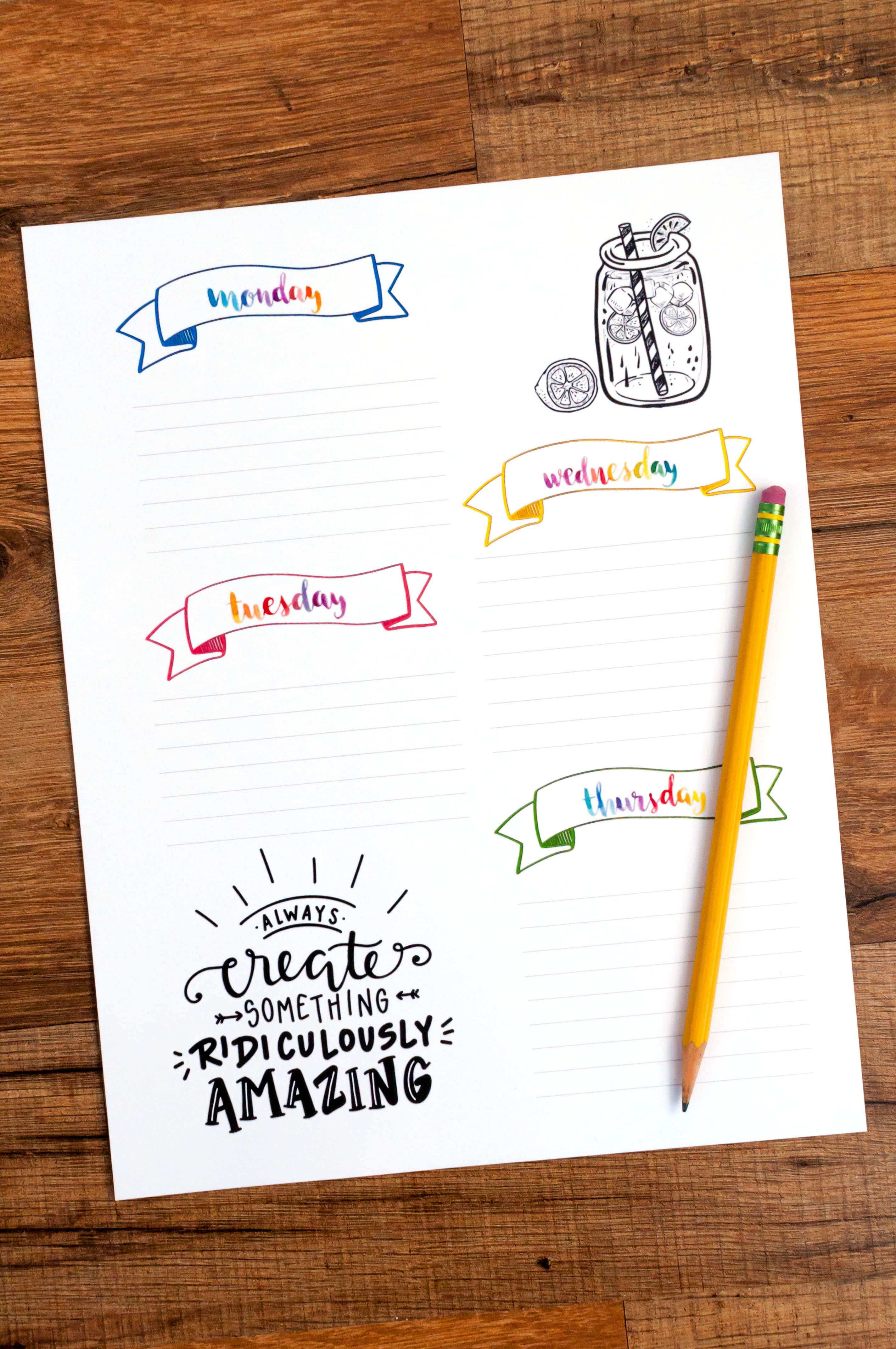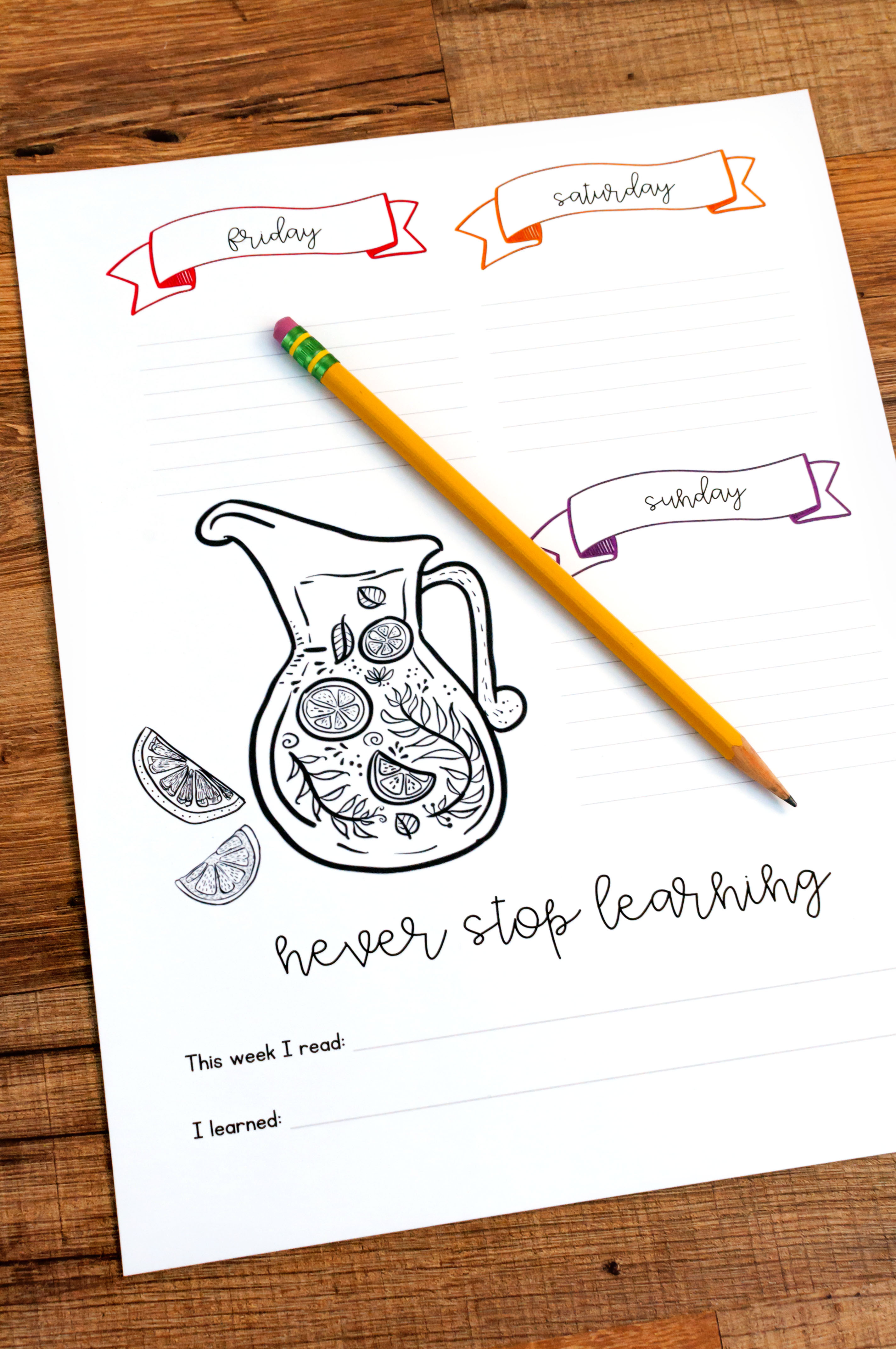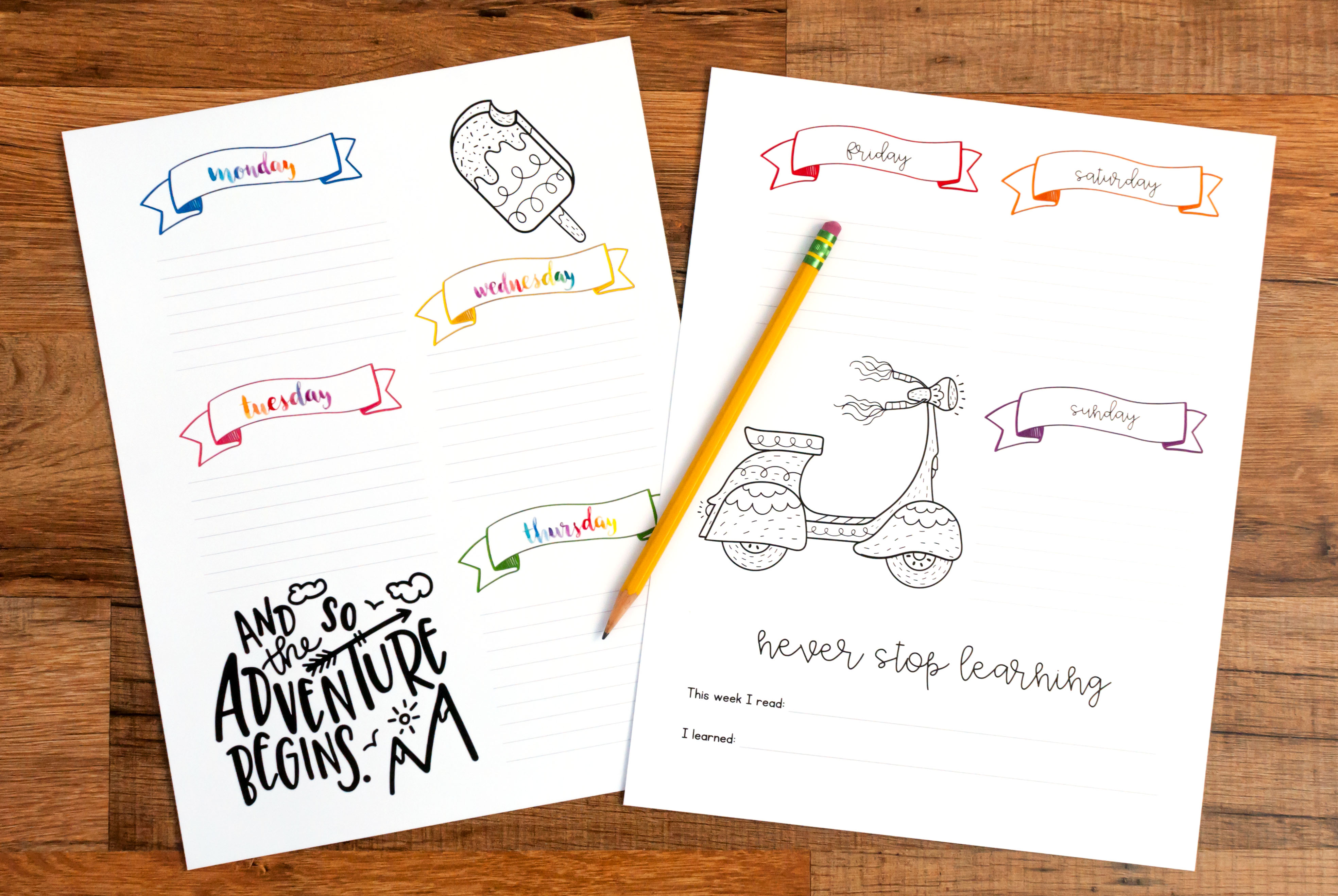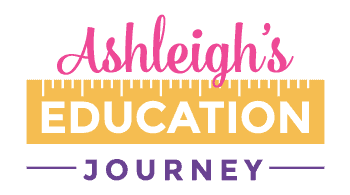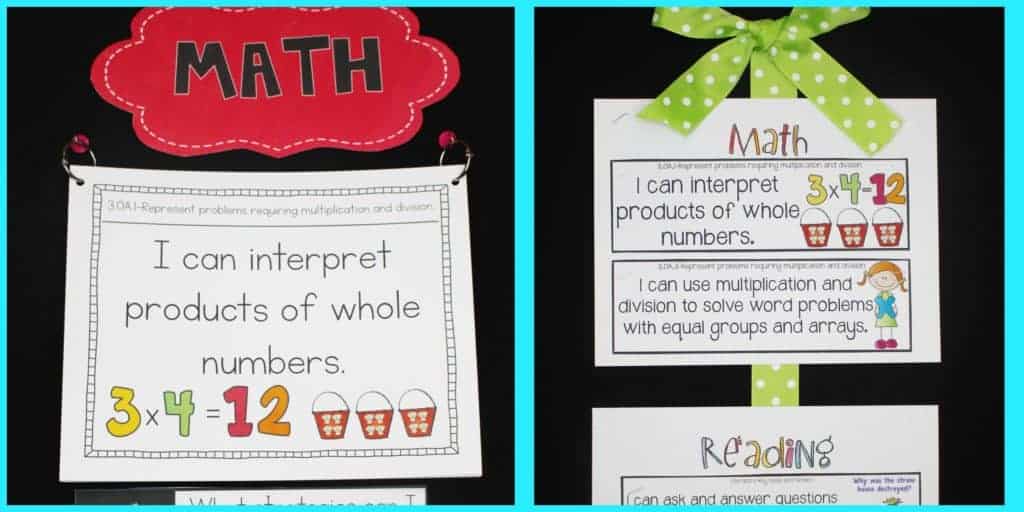
I absolutely cannot believe that it’s time to start thinking about the end of the year. While I am beyond excited about summer vacation, it always makes me so sad to think about the “summer slide” that many of my students will experience. Research shows that students are likely to lose two to three months of grade level skills over summer break. I recently was surprised to learn that summer slide is cumulative, with these learning losses building up each summer. Fortunately, there are some things we can do as educators to avoid the summer slide.
Access to Books
Access to books is a critical step to avoid the summer slide. The public library is an excellent free resource for families to have access to books of a wide range of interests and reading levels. However, I have found that it is often difficult for students in high poverty areas to access to public libraries, because of transportation issues. Fortunately, there are things we can do to get books in our students’ hands.
- Discard old books-At the end of the school year, teachers and our school librarian do a clean sweep of books, and we remove books that are no longer serving their purpose. We let students keep any old books that we would typically discard in a Book Swap, even though students don’t have to bring in a book to receive a book. You can even open it up to families and have families donate books to the Book Swap.
- Scholastic Bonus Points-I use my bonus points at the end of the year to send home a new book with each student. I try my best to select a book I know the student will enjoy. I make a big deal about being excited to talk about the book when we return to school.
- In my district we have a Meals on Wheels program for high poverty students over the summer months. I image local businesses and community members wouldn’t mind donating a book to go along with those meals.
- Magazines-Maybe someone could donate a magazine subscription to a few students. As a child, nothing was cooler than receiving something in the mail, so why not have reading material sent directly to their house. I’ve recently contact several children’s magazines and asked for donations of older copies that I can mail to students over the summer.
- I’m seeing more and more mobile libraries or informal neighborhood libraries. You could use old newspaper bins for mini libraries in your school community. I haven’t done this yet, but I’m excited to give it a shot!
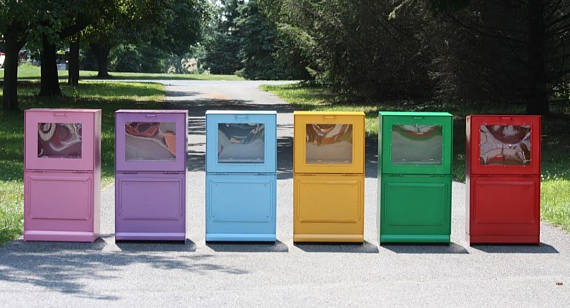
I don’t assign students a reading log or anything that makes reading seem like work over the summer. Why? I want my students to read because they want to, not because they have to. I do have a fun Summer Reading Bingo activity where students can try to complete a BINGO board over the summer. It’s not a quick and easy challenge, because I geared it toward upper elementary students. It’s just another tool to encourage students to read over the summer. You can download it for FREE here!
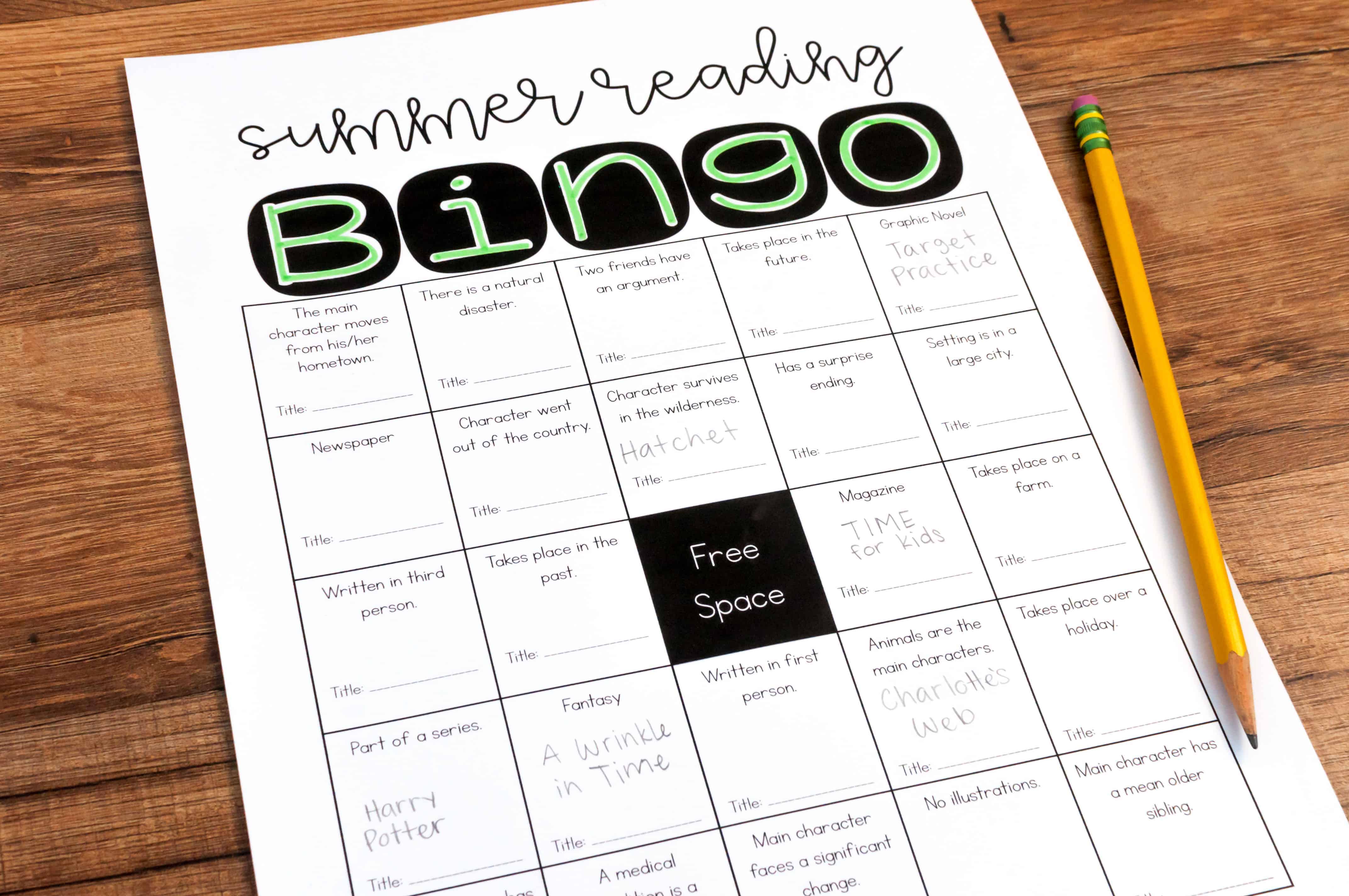
Avoid the Summer Slide – Review
I know I am only kidding myself if I thought my students would complete a pack of worksheets. They don’t want to do that in class, so I absolutely didn’t want to waste time, paper, and copies on something that would be thrown away the second my students walked out the door-or sooner. I have a review packet that I send home that is a different from traditional review worksheets. I made a little punch card to go along with the activities, so students can punch a hole in their punch card each time they complete something for some type of incentive.
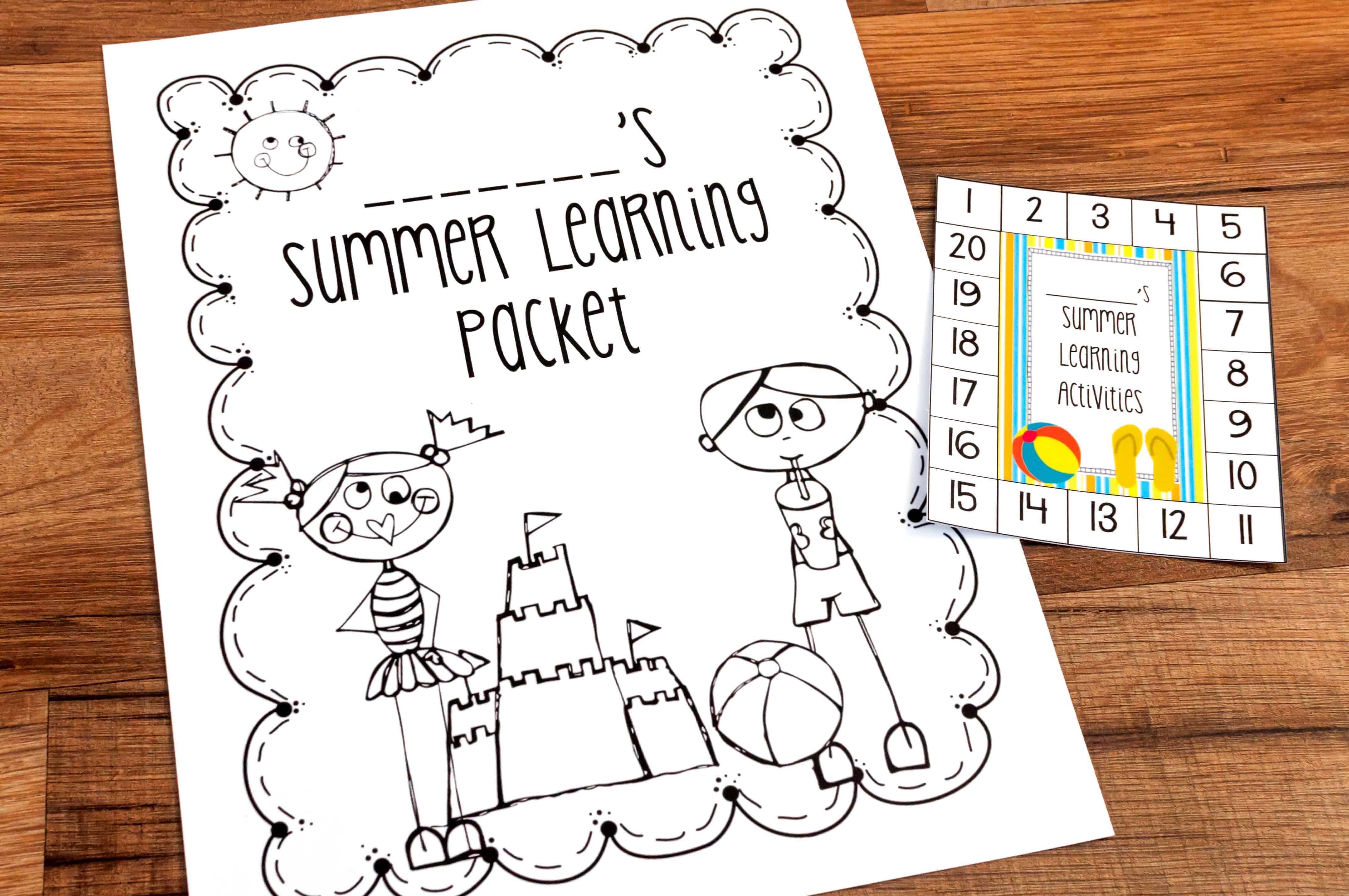
When designing these, I tried to keep all of the activities simple, so that students can read and follow the directions independently. I also kept everything fun, so that there’s a better chance that students will actually do the activities! I made reading, language arts, writing, math, and science activities, so there will be plenty to choose from. You can see examples of a few of the activities below.
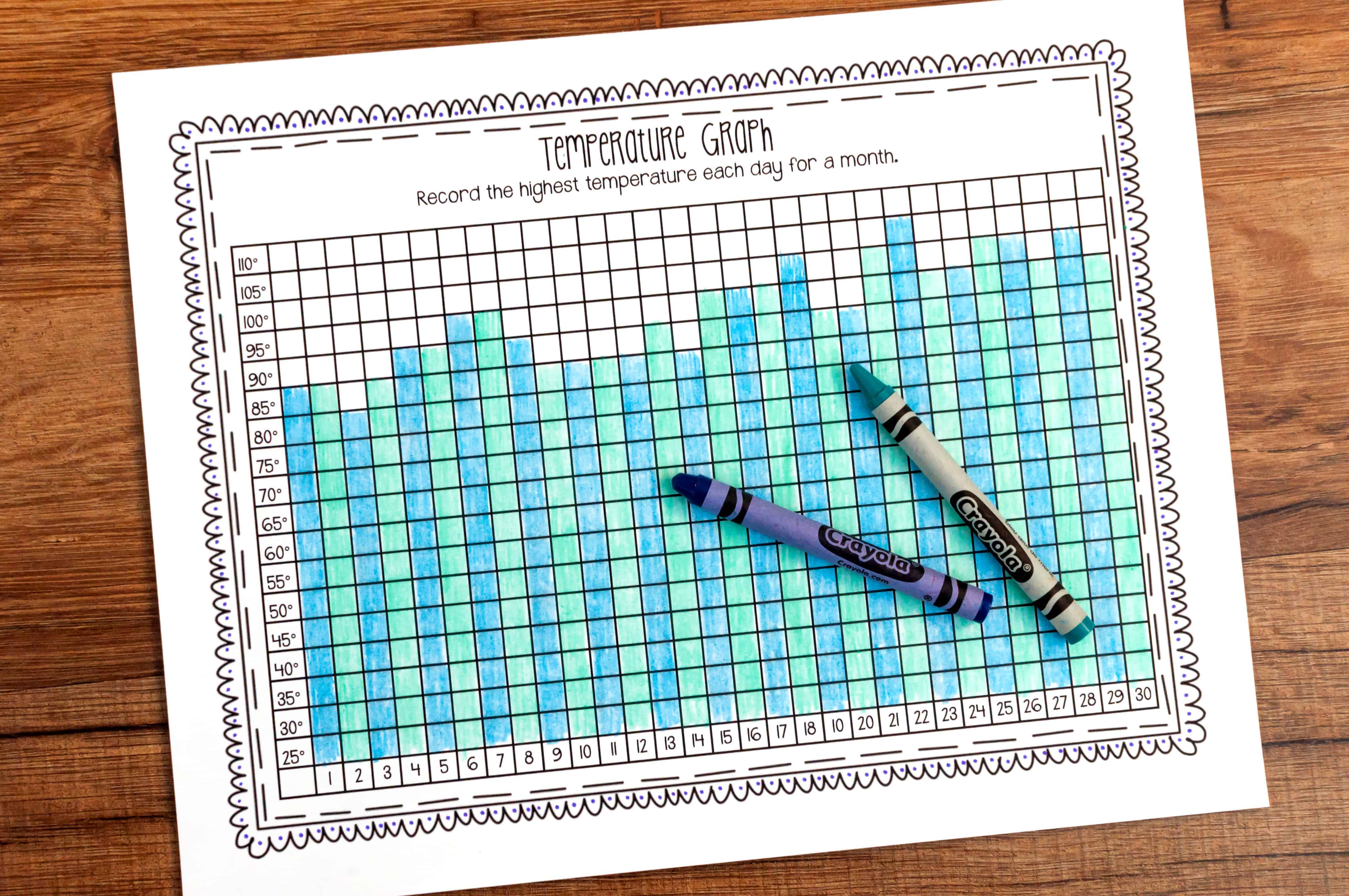
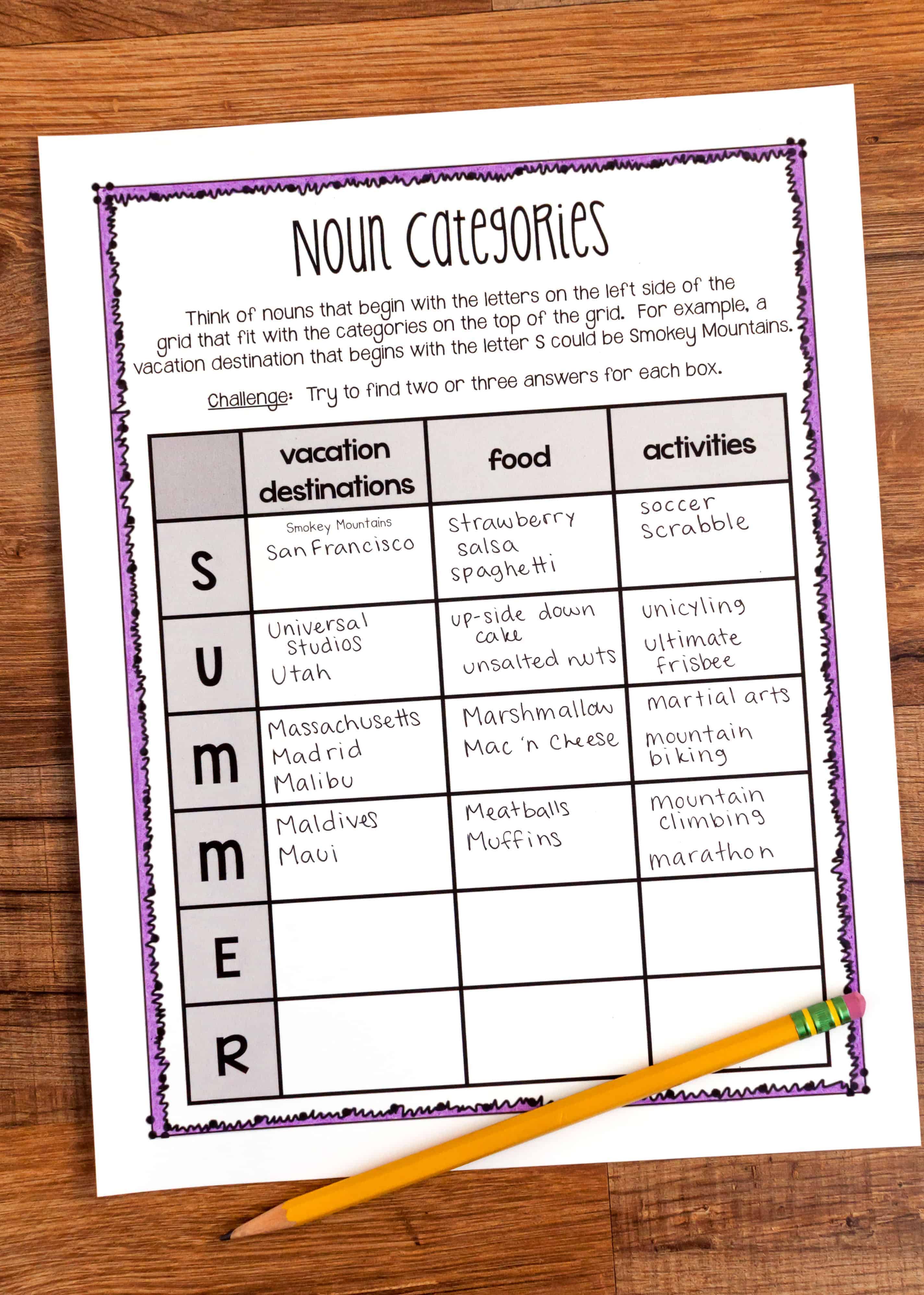
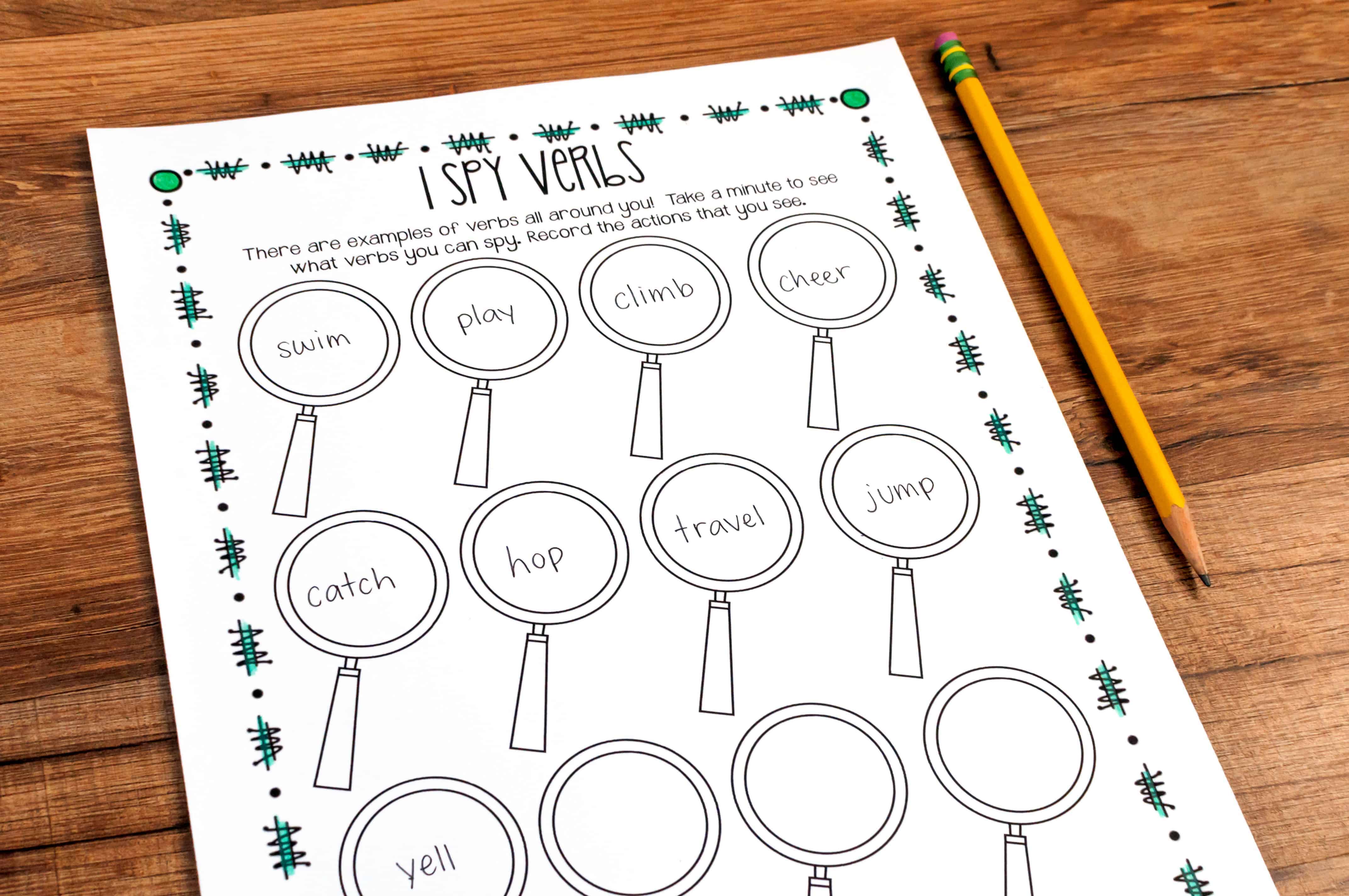
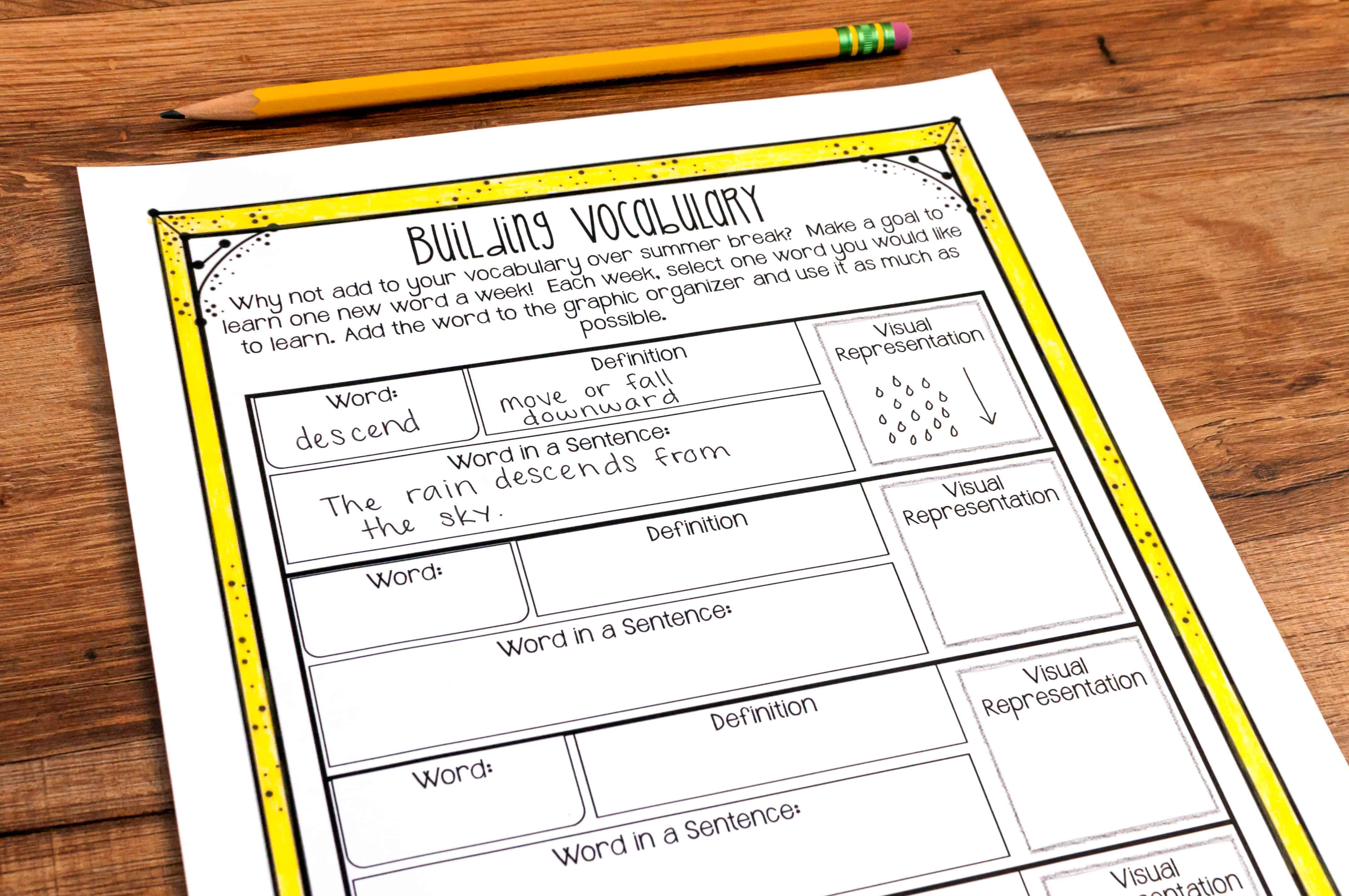
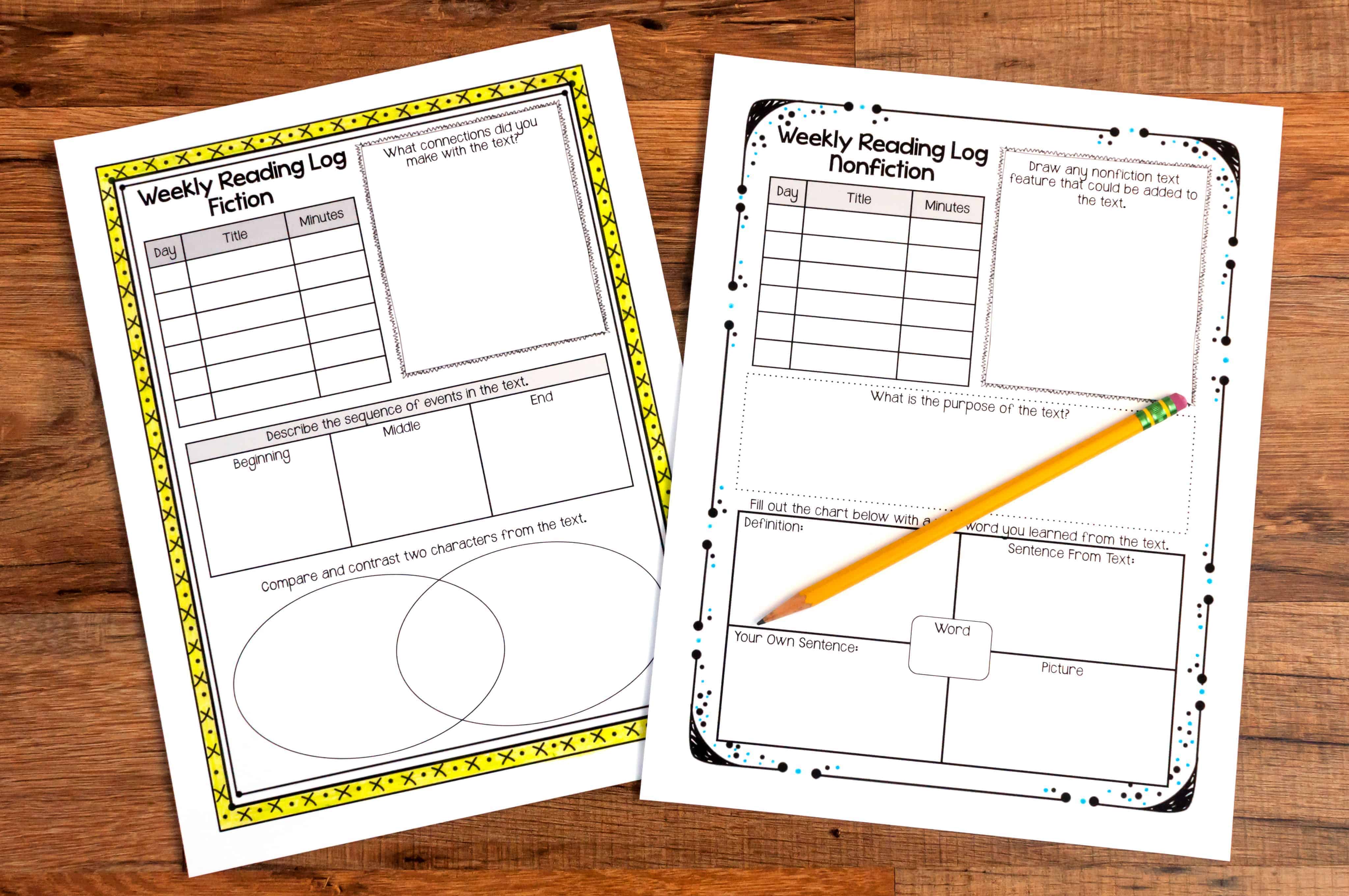
I do plan to do a few of the activities in class with my students, because they’ll make a perfect end of the year review. There are a couple of science projects that I know my students will love, so I want to do a few of them together. The pack is completely flexible and can be used however best fits for you and your classroom! Hopefully, it will help avoid the summer slide, so our students can hit the ground running in fourth grade!
Avoid the Summer Slide-Technology
Most students have access to technology, so I like to offer several ideas for using technology in a productive way. Of course, I recognize that if the game isn’t fun, students are not going to use it. I’ve limited my recommendations to only the resources that I think students will actually enjoy and spend time working with. Both aspects are key to help avoid the summer slide.
Apps:
- Math Doodles-This is an app that promotes mathematical thinking in a creative and dynamic way. It is not a “math fact” app, instead it presents a variety of math puzzles.
- Math Evolve-Math Evolve is a fun and engaging game that children can use to practice using the 4 number operations. It has an arcade-game feel, and it adapts to students’ progress.
- Bookabi-This offers fun and simple interface for younger grades. The app allows students to add images and illustrations to tell a story. Bookabi includes generic illustrations, including backgrounds and people in order for younger students can create stories without importing images.
- Telestory-This takes you behind the scenes to create and broadcast your own TV show! Record a music video, teleport to an alien planet, film a high-speed-chase, or perform on a reality TV show. Students can pick a theme, then mix and match over 30 animated scenes to film your own story.
- Hopscotch Coding-This app lets students make their own games and publish them instantly for anyone to play! Students love working on this app and being able to code gives them a much better understanding of how computers work.
Websites:
- Prodigy Math-there are plenty of math websites out there, but this is hands down my students’ favorite. There are others I like better for instructional purposes, but this is the most student friendly.
- Funbrain-This has free books for students to read online. It has a very child friendly interface.
- Kid Blog-I went back and forth on whether or not to recommend this site. I originally used this when it was a free site. It’s not longer free, BUT you can get a three month free trial, which is enough to get you through the summer. I love the idea of having students blog over the summer. It’s such an authentic way to have students write to a specific audience.
Road Trip Activities
I’m a firm believer that learning doesn’t have to be centered around academics and standards. Travel and novel experiences also play a HUGE role in the development of students emotional and cognitive growth. I recognize that not all families will be able to take summer vacations, but many families take a road trip of some sort over the summer, so I’ve created a little something you can send home with your students as a going away gift. You can even print it for your own family. It’s a collection of 15 games that can be played on a long, car road trip. Most of them are classics that we’ve all played for years, such as 20 Questions, but there are a few original ones too. My favorites are Travel Bingo and ABC Billboards. You can download the file here! I can’t promise that this will make your road trip fun, but maybe a little more tolerable!
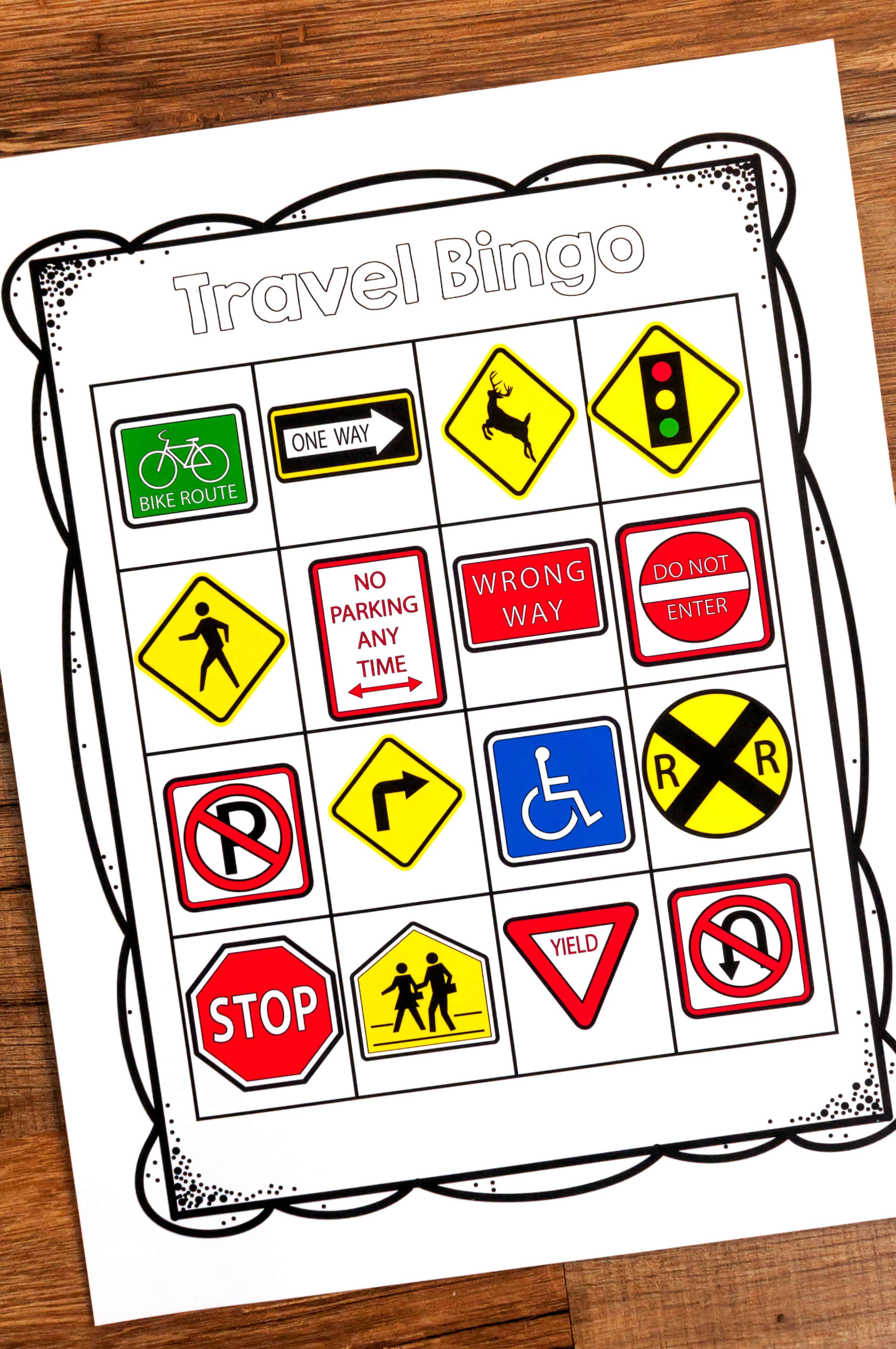
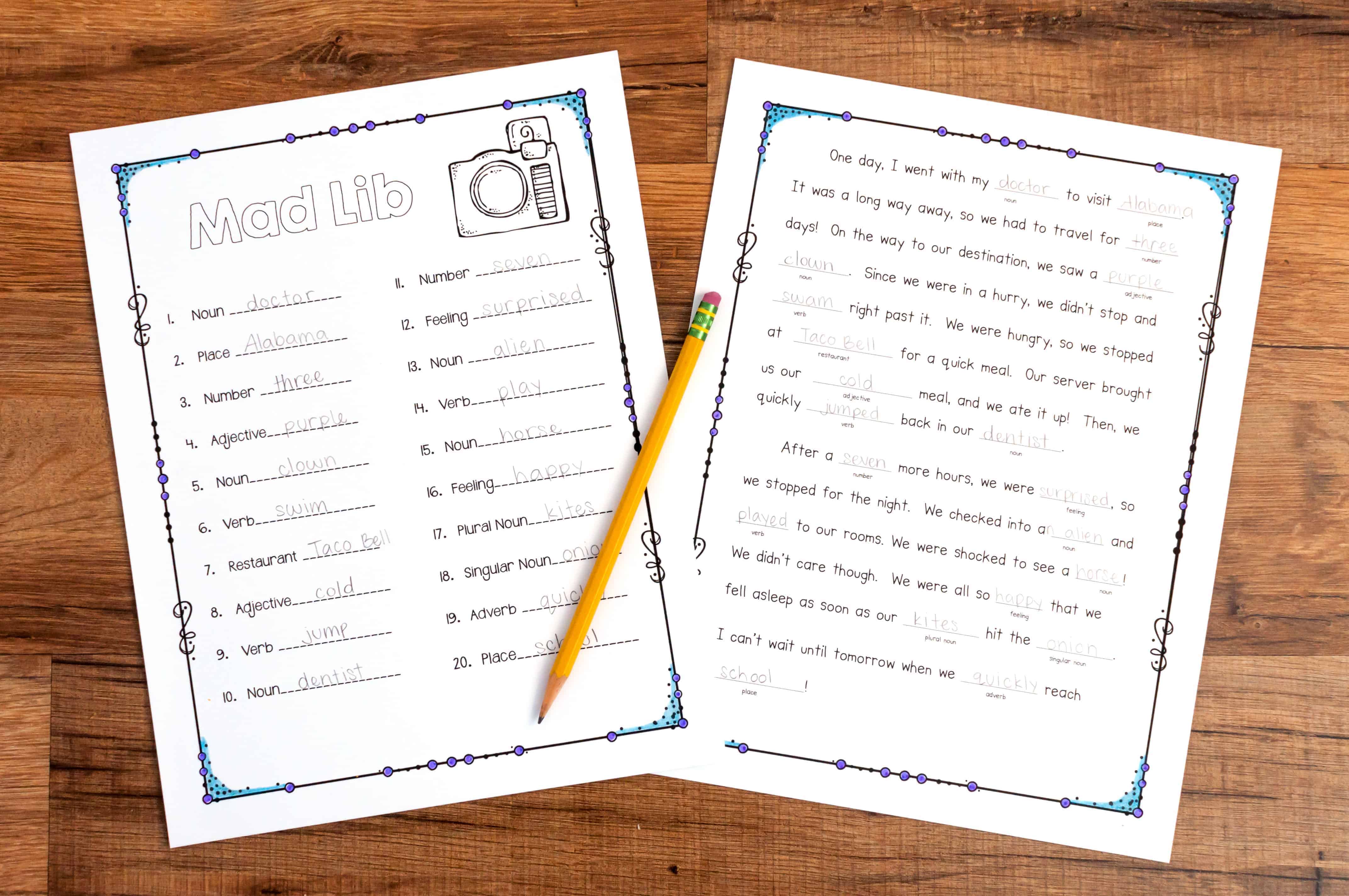
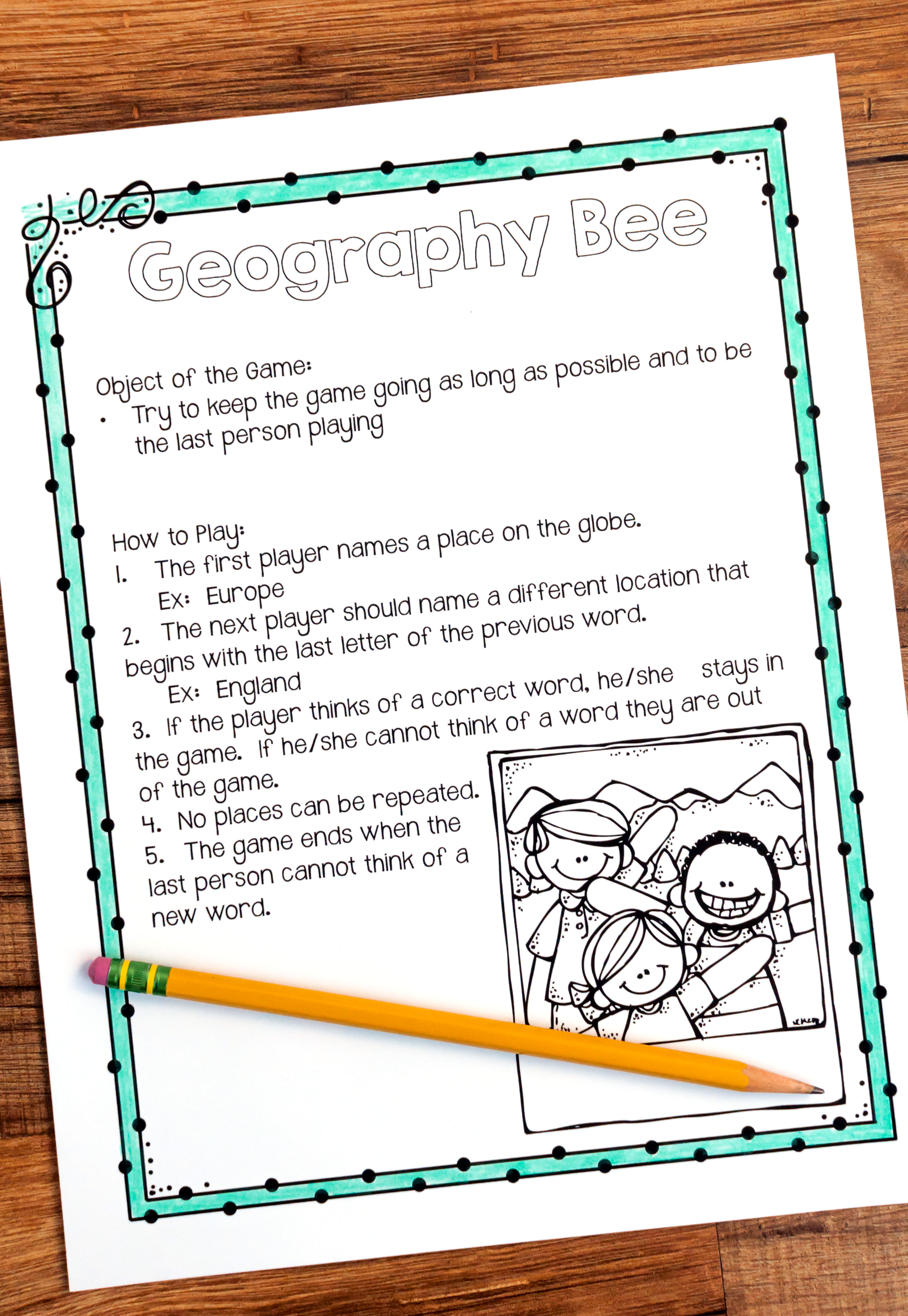
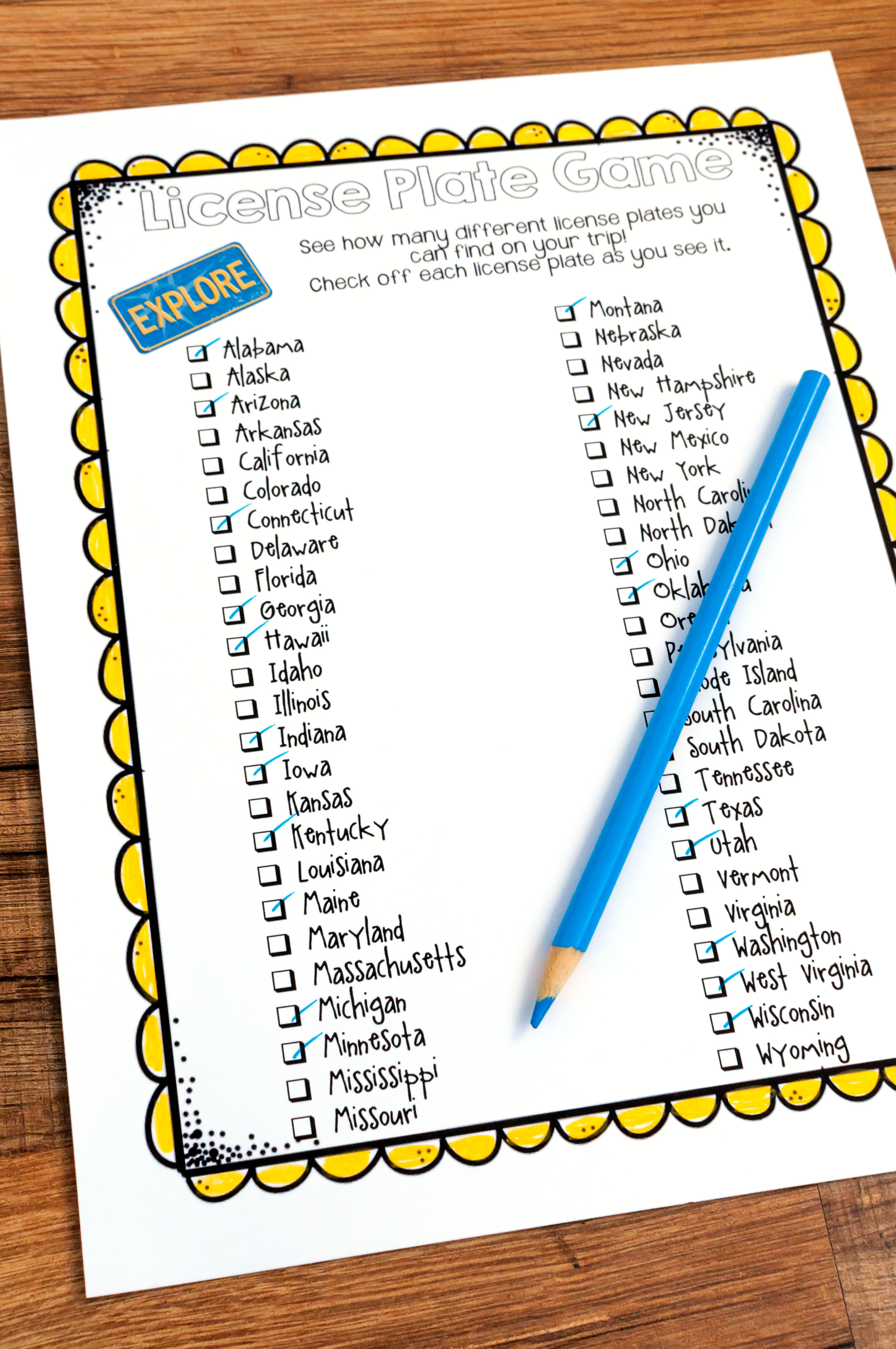
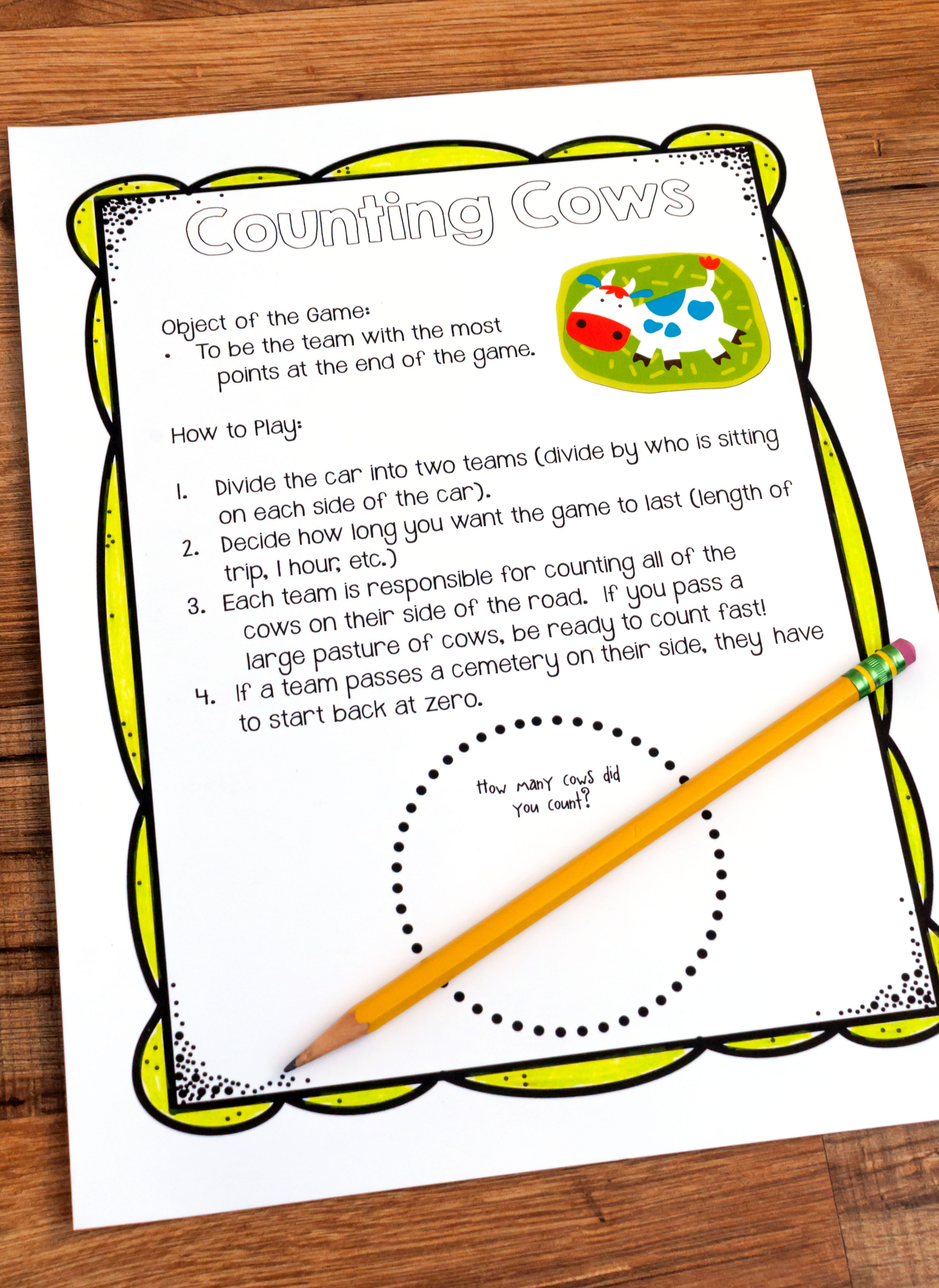
Avoid the Summer Slide – Journaling
